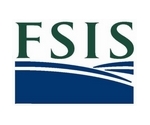FSIS Posts FAQ Page about Foster Farms' Salmonella Outbreak

The U.S. Department of Agriculture's (USDA) Food Safety and Inspection Service (FSIS) on Oct. 16 issued a notice that it had posted on its website a Frequently Asked Questions (FAQ) page regarding the recent Salmonella outbreak that has been traced to raw chicken products from three Foster Farms processing plants in California.
Judging by media reports, the outbreak — and the lack of a product recall by either Foster Farms or the FSIS — has raised serious concerns among consumers and evoked an outcry from some consumer advocacy groups. Nevertheless, both the agency and the company have maintained that a recall is unnecessary. The agency explains its process in the FAQ, reproduced below:
Q: When did FSIS first learn of the Salmonella outbreak?
On June 28, FSIS was notified of a Salmonella outbreak in four states resulting in 18 illnesses.
Q: What was FSIS’ first course of action when the agency learned of the outbreak?
At that time, FSIS began its own investigation, following up on specific information provided via case-patient interviews or shopper card data provided, which indicated a likely association between illnesses and patients’ exposure to products produced by three Foster Farms establishments located in California. In September, FSIS began intensified testing of raw chicken products at the three Foster Farms plants. By the beginning of October, FSIS had completed the testing of virtually all samples taken as part of the investigation.
Q: What actions were taken beyond the initial investigation and the intensified testing?
On October 7, 2013, FSIS issued a Public Health Alert and a Notice of Intended Enforcement Action and thereby took an affirmative step to address Foster Farms' process for preparing product. Taken together, these actions represented the most effective course of action based on the available facts. In response to FSIS action, Foster Farms initiated a corrective action plan and will continue to implement additional food safety measures in the coming weeks. As Foster Farms continues production, FSIS will monitor their interventions and actions through intensified testing to ensure compliance.
Q: What is the difference between a Recall and a Public Health Alert?
A recall is a company’s action to remove product from commerce to protect the public from consuming adulterated or misbranded products. Although it is a firm’s decision to recall product, FSIS coordinates with the firm to ensure the firm has properly identified, and then removed, the recalled product from commerce. FSIS also verifies the effectiveness of the company’s recall activities. FSIS also notifies the public about product recalls by, in most instances, issuing a press release.
A Public Health Alert is used in situations where FSIS personnel have reason to believe that a meat or poultry product may be associated with human illnesses, but they cannot identify a specific product that is linked to the illnesses.
When public health is threatened by meat or poultry products, FSIS has an obligation to act in a manner that is consistent with the evidence before it. In this case, FSIS did not have the evidence to make a legal case for a recall of product produced by Foster Farms. With the evidence at hand, FSIS acted to inform consumers through the issuance of a Public Health Alert.
Q: What is FSIS advising consumers to do with Foster Farms poultry that they have already purchased?
FSIS reminds consumers to properly handle raw poultry in a manner that prevents contamination from spreading to other foods and food contact surfaces.
It important that consumers follow package cooking instructions for frozen or fresh chicken products and general food safety guidelines when handling and preparing any raw meat or poultry. In particular, while cooking instructions may give a specific number of minutes of cooking for each side of the product in order to attain 165 °F internal temperature, consumers should be aware that actual time may vary depending on the cooking method (broiling, frying, or grilling) and the temperature of the product (chilled versus frozen) so it is important that the final temperature of 165 °F must be reached for safety. It is important to use a food thermometer to properly obtain the internal temperature.
Q: Has the government shutdown affected FSIS’ ability to respond to this Salmonella outbreak?
No. FSIS is committed to food safety and this commitment continues in spite of the government shutdown. The agency’s 8,000 inspectors remain on the job and have been fulfilling their regular inspection duties. Furthermore, our laboratories have remained operational, allowing the agency to continue testing for Salmonella and other pathogens. FSIS will continue to monitor the situation with Foster Farms products and provide additional information to the public as necessary.
Looking for a reprint of this article?
From high-res PDFs to custom plaques, order your copy today!




